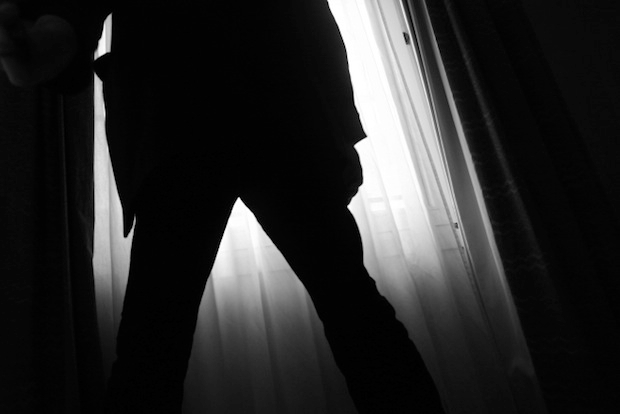There is a problem with describing what happens in Nagasaki: impossible to reveal much of the plot without flagging up serious spoiler alerts. The story demands an innocent eye; the gaining of knowledge should come page by page, and not be hurried.
To set the scene: Shimura-san, a bachelor of 56, set in his ways, lives quietly in a house on the steep hillside above the Nagasaki dockyards. He has an undemanding job as a meteorologist, analysing weather patterns. One day, returning after work, hot, sticky and tormented by the clamour of cicadas, he notices, not for the first time, that a pot of yoghurt is missing from the fridge. Is the fruit juice bottle exactly where he left it that morning? He measures the level, and next day it has dropped. The front door lock has not been forced, nothing has been stolen, but as days pass he is filled with a growing sense of unease. Is someone breaking in, and if so, how? The intruder seems able to walk through walls.
Or could he be losing his mind?
Shimura decides to set a trap: a webcam linked to his office computer allows him to keep watch on the kitchen. The plan works: a weird, nightmarish revelation leads to an arrest. But solving the mystery by no means solves the problem.
This is French author Éric Faye’s ninth novel, winner of the Académie Française Grand Prix in 2010. In unhurried, limpid prose (Emily Boyce’s translation is exemplary, supple, capturing the author’s understated wit and meandering melancholy) the journey from discovery to dénouement follows both the householder and the intruder, with the narrative voice split between two protagonists. Little by little, everything is explained. Or so we think, until the novel changes gear and a deeper truth is revealed, tragic and touching, which casts a transforming light on what has gone before. With the lightest of touches we are led into a world of alienation, guilt and loss.
Sealed in a bell-jar of loneliness, Shimura listens to TV programmes dominated by the growing economic crisis: the banks have stopped lending money, the dockyards are quiet and within 20 years robots will replace humans as carers for the old and sick. The world is shifting into dystopia; society is fragmenting, and he finds himself preoccupied with the fate of the individual who has entered his life in such a bizarre way.
The intruder, too, has more to tell us. Nagasaki’s history has shaped its people, and Europe has always been part of that history over the centuries. Although 9 August 1945 is mentioned only in passing, anyone who visits the city even now, nearly 70 years later, is conscious of the enormity that lies behind the smiling stoicism of the survivors and their descendants. The vivid fringe of memory trails through these lives. In 109 pages what seemed at first a slight story unfolds, like those Japanese paper pellets that, dropped into water, expand into fragile, delicate beauty that touches the heart.






Comments